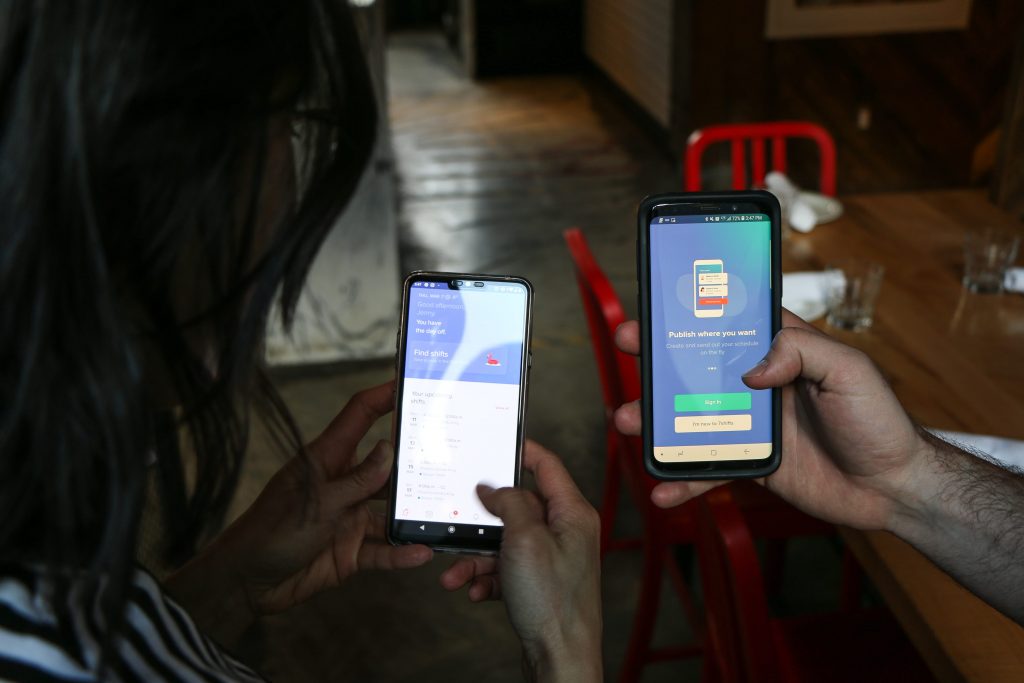Should Starmer ban smartphones for under 16s?
They provide open access to (and approaches from) an almost infinite variety of adult platforms

Ready to find freedom?
If you are ready to be free from social media, phone or gaming addiction click here to learn about the programme
Choose the right programme for youAs co-author or Allen Carr’s Smart Phone, Dumb Phone book and technology addiction online video programme I was initially disappointed to read that Sir Keir Starmer has dismissed the idea of banning mobile phones for children under 16.
Instead, he emphasizes the need to regulate the content accessible to young people.
It makes sense, last year, Esther Ghey, whose daughter Brianna was murdered, advocated for restricting harmful content on phones for under-16s and former Conservative MP Miriam Cates proposed a complete ban on mobile phones for this age group, likening them to harmful drugs.
Mobile phone ban for kids considered impractical
Starmer opposed the outright ban on mobile phones, considering it impractical, but showed a willingness to discuss better protective measures for children’s online safety.
I do wonder whether there is a sensible middle ground here.
Although there might be arguments that banning under-16s from having mobile phones might be impractical – does the same apply to under-12s or under-10s?
Staggeringly, according to a recent OfCom study, around a quarter of 5-7-year-olds now own a smartphone! Who knows what the most appropriate age might be for a youngster to be handed their first smartphone – but I think most sane people would agree – it isn’t under 11, let alone under 7!
Peer pressure appears to be a main driver
Whether it’s phone ownership, online gaming, or access to social media, peer pressure seems to be playing a significant role among the kids and the parents who facilitate their access.
Katharine Birbalsingh, brilliant headteacher of the extraordinary success story that is Michaela Community School in Wembley, London, believes that access to smartphones can negatively impact a child’s social mobility, saying,
“We work very hard with families to encourage them not to give [their children] a smartphone. Because all of the problems start on smartphones,”.
All options need to be considered
Age restrictions for mobile phone use would almost certainly help parents as much as they help children.
I have no idea how so many parents struggling to make ends meet manage to provide their kids with smartphones – but taking the decision away from them by introducing age restrictions would dismantle most of the peer pressure to do so.
The argument for ‘dumb phones’ rather than smartphones for school-age teens is also strong.
Here are five compelling arguments for why a child might be better off with a dumb phone rather than a smartphone:
Reduced screen time:
-
-
- Argument: A dumb phone limits access to the internet, social media, games, and apps that can consume a child’s time.
- Reasoning: By having a device with fewer distractions, children are more likely to engage in other activities such as reading, playing outside, or spending quality time with family and friends.
-
Enhanced safety and privacy:
-
-
-
- Argument: Without the lure of constant notifications and apps, children can concentrate better on their studies.
- · Reasoning: Reduced digital distractions help children develop better study habits, leading to improved academic performance and cognitive development.
-
-
Improved focus and academic performance:
-
-
- Argument: Without the lure of constant notifications and apps, children can concentrate better on their studies.
- Reasoning: Reduced digital distractions help children develop better study habits, leading to improved academic performance and cognitive development.
-
Development of social skills:
-
-
- Argument: Dumb phones encourage more face-to-face interactions and real-world socializing.
- Reasoning: Children can develop stronger interpersonal skills and emotional intelligence by engaging more in person rather than relying on digital communication.
-
Promotion of healthy lifestyle:
-
- Argument: A dumb phone can encourage a more balanced lifestyle.
- Reasoning: Limiting screen time promotes physical activity, better sleep patterns, and reduces the risk of digital addiction, leading to a healthier and more active lifestyle.
The arguments against smartphone use by our youngest children are compelling and although some may say that age restrictions might slow down their digital development, I think the positive impact on their human development would more than make up for that.
Do you need help with smartphone or technology addiction? Check out our technology addiction programme.




